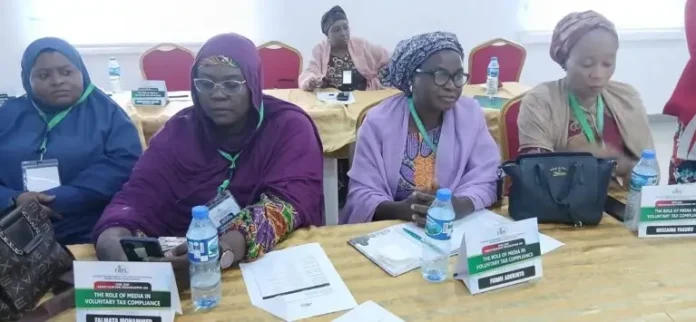The United States of America Centre for Disease Control and Prevention (U.S. CDC), in partnership with the Nigerian government, have trained 2,400 community volunteers across the Federal Capital Territory (FCT), Sokoto, Ebonyi, and Ondo State.
Dr Muhammad Saleh, U.S. CDC Senior Emergency Management Specialist, made this known in an interview with journalists on Wednesday in Abuja
Saleh said the training was part of a broader health security initiative aimed at improving Nigeria’s ability to detect, investigate, and respond to infectious disease outbreaks.
He said that the volunteers were also required to raise awareness on safe hygiene practices, and link patients with health facilities for rapid treatment.
He said that the initiative leverages community trust to improve outbreak surveillance and prevention.
According to him, because they were trusted members of their communities, people are more willing to listen to them.
“They can spot unusual cases quickly and raise the alarm. That early detection saves lives,” he said.
Saleh said that the volunteers go door-to-door teaching people proper hand-washing; discouraging open defecation; and warning against unsafe self-medication from roadside chemists.
He said they also plaid a crucial role in dispelling myths and misinformation about cholera and other infectious diseases.
He said: “trust is everything; when a volunteer tells a neighbour that vomiting and passing stool could be cholera, people listen.
“They know this person, they see them daily; so, the message is credible,”.
He said that the volunteers were part of a broader strategy to strengthen health system resilience.
Saleh said that Nigeria adopted new tools such as disease hotspot mapping and fully operational Emergency Operations Centres (EOCs) in all the 36 states and the federal capital territory.
He acknowledged challenges such as limited resources, attrition of trained personnel, and the persistence of misinformation but said the collaborative approach between government, partners, and communities was already yielding results.
“Everybody has a role to play, communities, families, partners, and government.
“The more we sustain these collaborative efforts at the grassroots level, the more resilient Nigeria becomes against cholera and other infectious diseases,” he said.
Cholera is a severe diarrheal disease caused by contaminated food or water containg the ‘Vibrio cholerae bacterium” , leading to rapid dehydration and potentially death within hours if untreated.
Experts say symptoms, which can take 12 hours to five days to appear, include profuse watery diarrhea, nausea, vomiting, and muscle cramps.
Treatment focuses on rehydration with oral or intravenous fluids and may involve antibiotics, while prevention relies on access to clean water, sanitation, and good hygiene.




